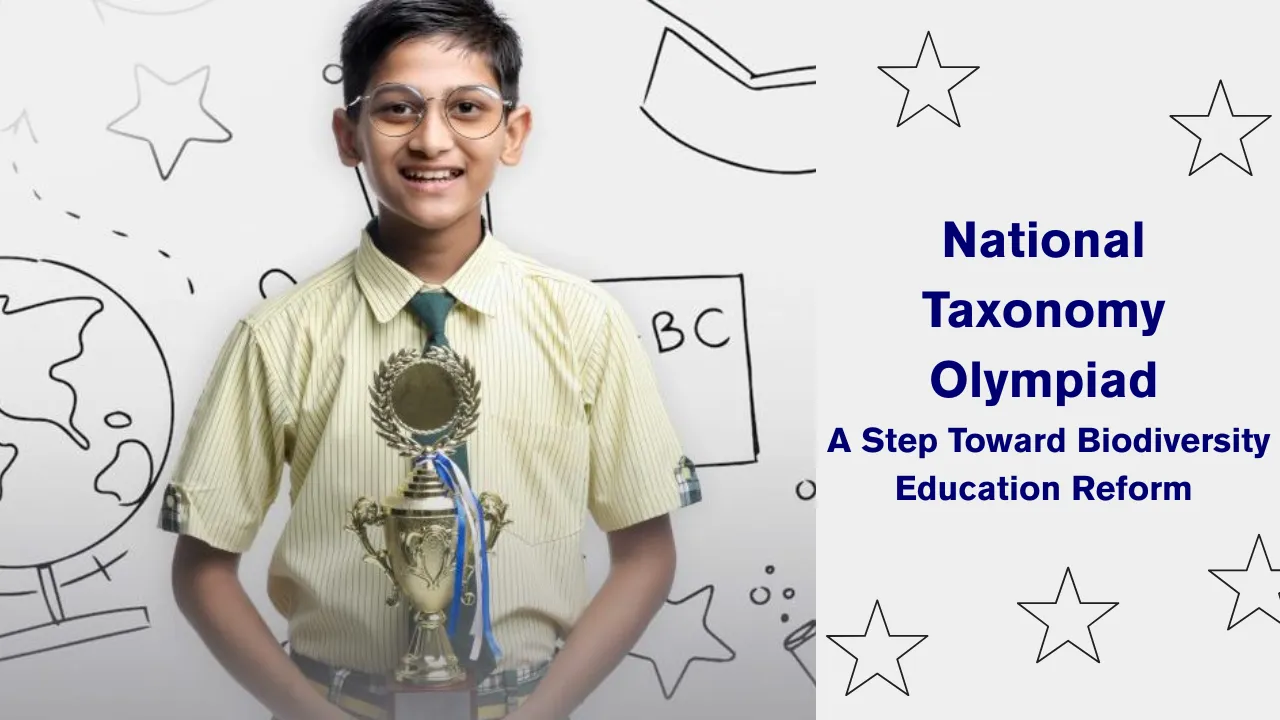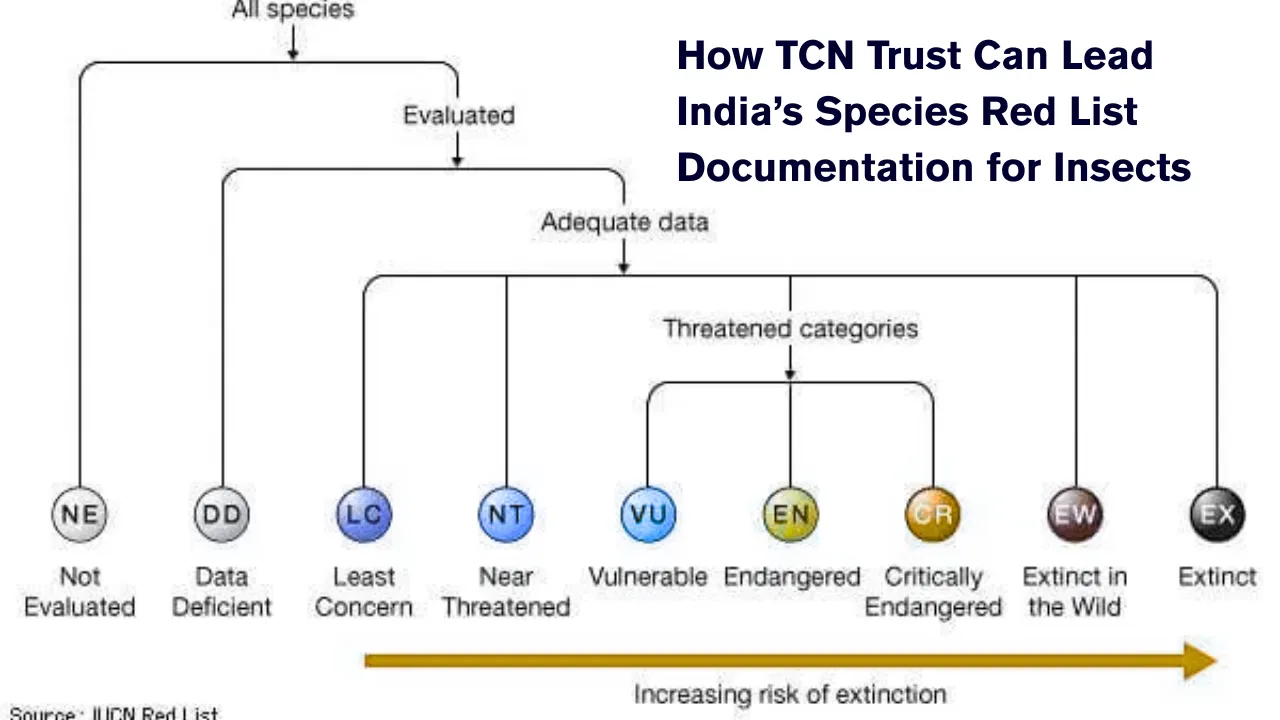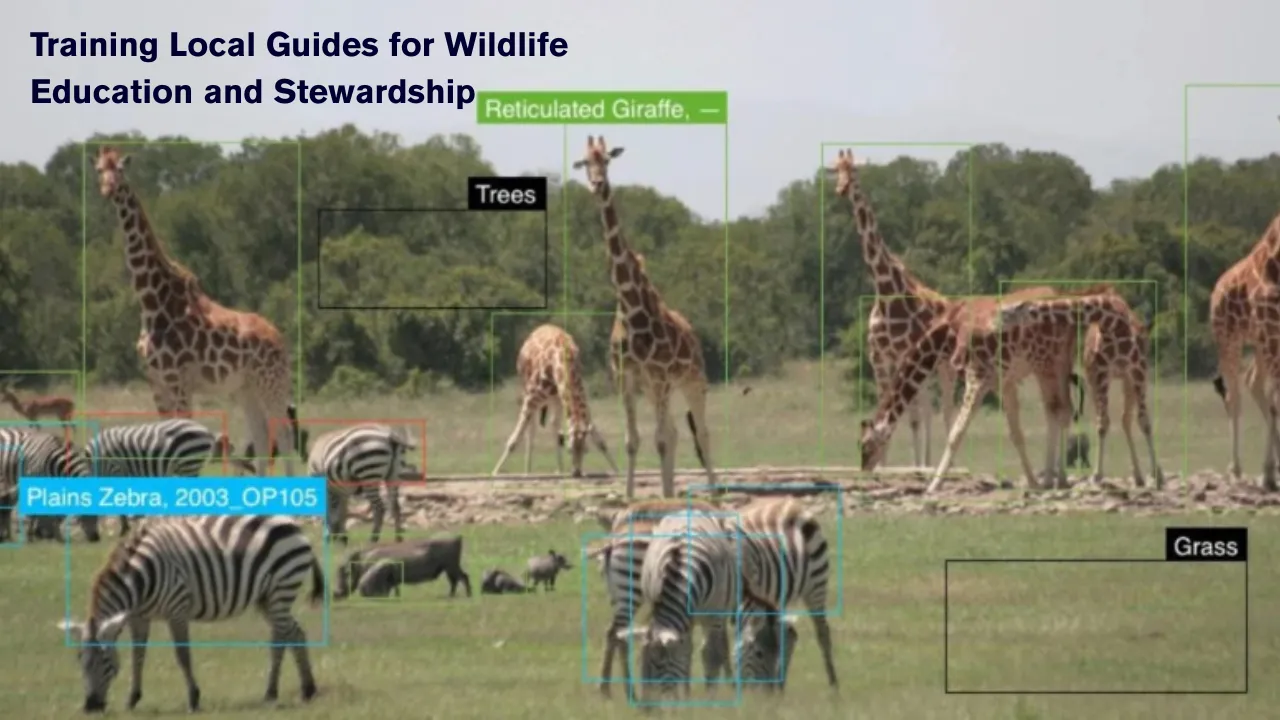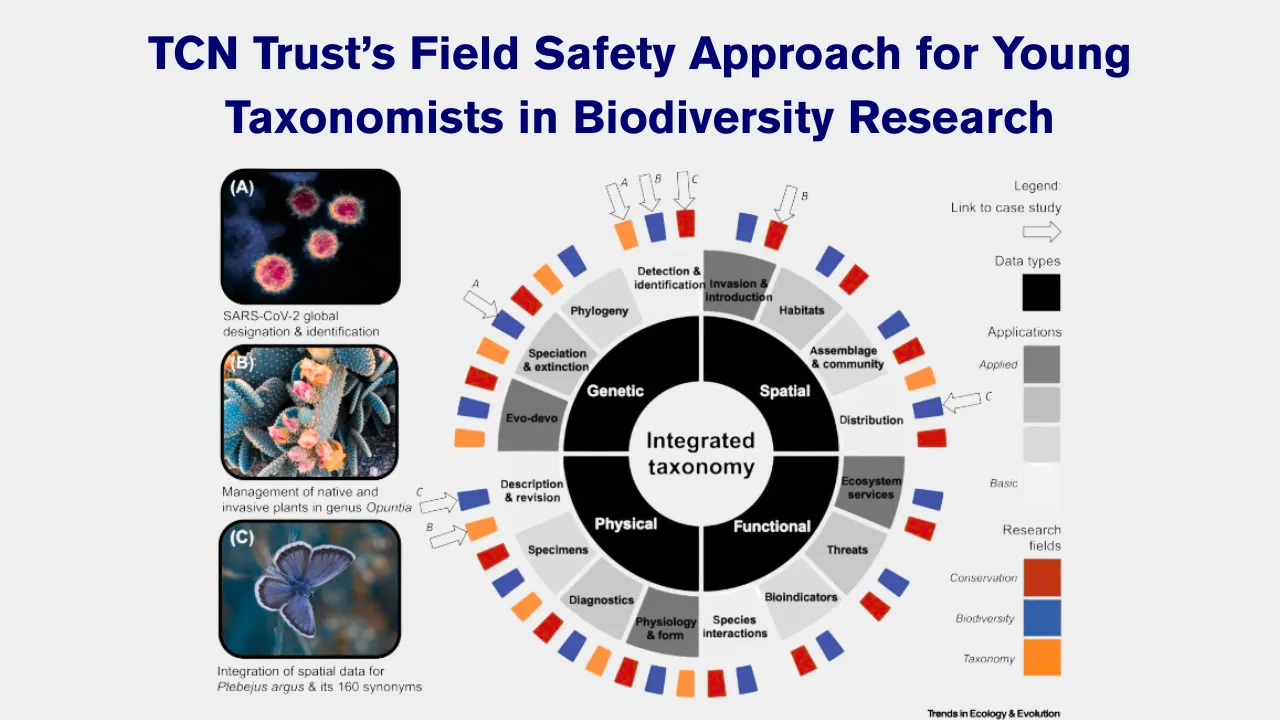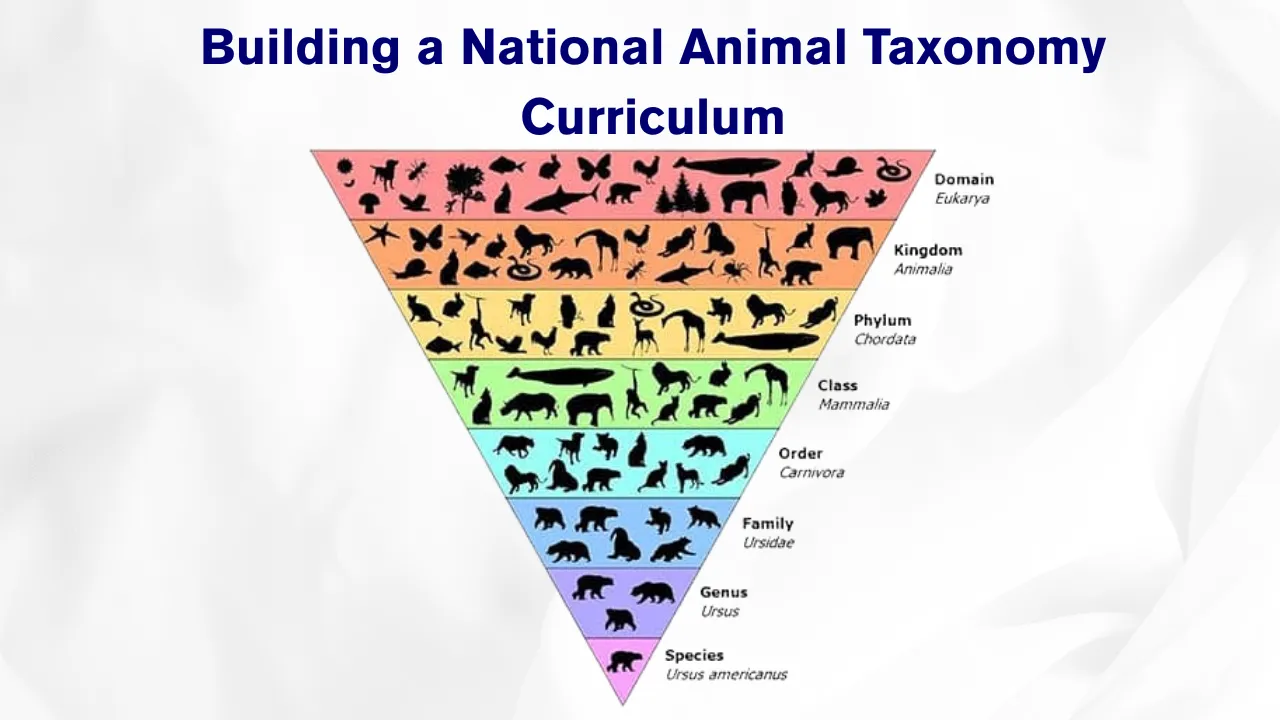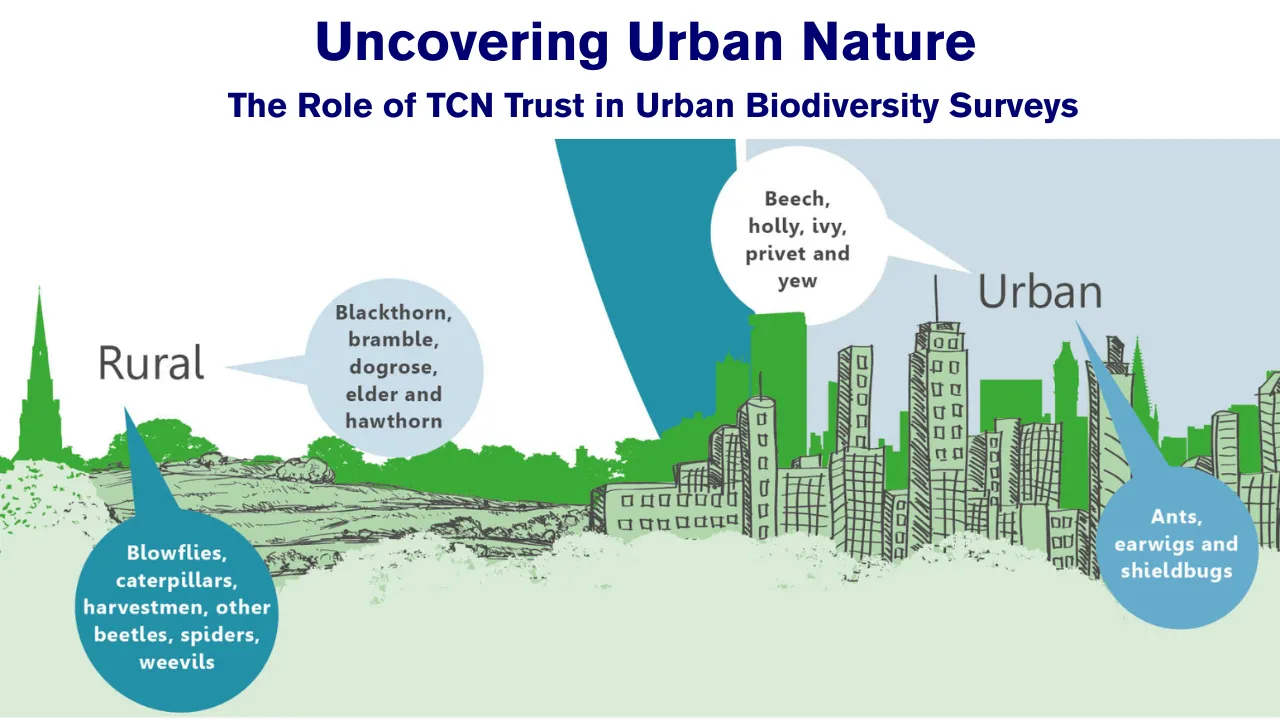National Taxonomy Olympiad: India is one of the most biologically diverse nations on Earth, yet the discipline that helps us understand and organize this diversity—taxonomy—remains underappreciated and under-resourced. Despite playing a foundational role in environmental science, conservation policy, and biodiversity monitoring, taxonomy has seen a steady decline in visibility within education and research sectors. Few students today are aware of the career potential or scientific importance of taxonomic work.
To address this gap, the idea of launching a National Taxonomy Olympiad is both timely and necessary. Such a competition could engage students, nurture talent in biodiversity science, and give the next generation of scientists a reason to explore taxonomy as a vital and exciting discipline. This article makes a strong case for why the TCN Trust should spearhead this initiative and outlines the structure, purpose, and long-term impact of the proposed Olympiad.
National Taxonomy Olympiad: A Step Toward Biodiversity Education Reform
A National Taxonomy Olympiad would serve as a national platform for high school and college students to test and develop their skills in species identification, ecological understanding, and scientific classification. By organizing a competitive, knowledge-driven program, the Olympiad would spotlight taxonomy as a career and research pathway. It would also bridge the gap between academic science and field-based ecological literacy. In doing so, it aligns with the larger mission of the TCN Trust to strengthen biodiversity awareness, conservation education, and citizen science engagement across India.
Overview of Why the Olympiad Is Needed
| Key Area | Explanation |
| Biodiversity Crisis | India’s ecosystems face rapid degradation, and taxonomists are essential for species monitoring. |
| Education Gaps | Taxonomy is often left out of mainstream biology education or treated superficially. |
| Career Unawareness | Students are rarely exposed to systematics or species science as potential professions. |
| Global Trends | Several countries have national biodiversity contests; India lacks one. |
| Youth Engagement | Early participation builds long-term interest in environmental sciences. |
Why the Time Is Right for a National-Level Taxonomy Olympiad
India’s rapidly changing landscapes, urban expansion, and climate shifts demand better ecological knowledge. However, scientific attention on taxonomy has dwindled over the years due to institutional neglect and limited public outreach. This has created a vacuum of trained professionals who can identify species, study ecological interactions, and classify lesser-known organisms.
The National Taxonomy Olympiad can act as a powerful tool to reverse this trend. As India embraces the goals of the National Education Policy (NEP) 2020—which encourages experiential learning and cross-disciplinary engagement—this initiative would bring hands-on biodiversity education to the forefront. It would also introduce taxonomy as a modern, evolving science connected to genetics, digital biodiversity mapping, environmental forensics, and conservation biology.
How TCN Trust Can Champion the Olympiad
TCN Trust, known for its commitment to nature education, scientific outreach, and conservation leadership, is well-positioned to lead the creation of the National Taxonomy Olympiad. Its experience with citizen science and grassroots biodiversity programs makes it an ideal host organization for a national initiative with both scientific and public education value.
The Trust can:
- Mobilize Institutional Partnerships: Engage with schools, colleges, botanical gardens, and natural history museums to host events and training sessions.
- Leverage Taxonomic Expertise: Draw on a pool of senior botanists, zoologists, ecologists, and museum curators to create rich, field-relevant content.
- Design Tiered Competitions: Ensure access and inclusion by structuring the Olympiad in stages—local, regional, and national.
- Develop Open Access Learning Resources: Offer preparatory materials, biodiversity guides, and video tutorials to reach students in remote areas.
- Showcase Indian Biodiversity: Ensure content features native species, local ecosystems, and real-world taxonomy challenges.
Proposed Structure of the Olympiad
To ensure both reach and rigor, the National Taxonomy Olympiad could be designed in a multi-level format, combining digital access with field-based experiences.
1. Preliminary Round (Online Format)
Students register through schools or independently. A virtual quiz tests general knowledge in biology, taxonomy, and biodiversity awareness.
2. Regional Round (In-Person or Hybrid)
Top scorers participate in regionally coordinated events that include hands-on identification tasks, specimen-based classification, and field observation challenges.
3. National Final (Hosted by TCN Trust)
Finalists gather for an immersive, 2–3-day competition that includes lab work, microscopy, species cataloging, ecosystem analysis, and expert-led workshops.
4. Advanced Mentorship & Training
Top students could be invited to exclusive biodiversity camps, given internships with research institutions, or mentored by leading taxonomists.
Skills and Values the Olympiad Will Promote
- Field Observation: Accurate recording and analysis of plant, animal, and insect species in natural environments.
- Critical Thinking: Using classification keys, morphology, and evolutionary clues to identify unknown organisms.
- Scientific Curiosity: Instilling lifelong interest in nature and the discipline of systematics.
- Research Methods: Learning how to document, collect, and analyze biological data.
- Conservation Ethics: Building awareness of ecological balance and the importance of protecting all species, known and unknown.
Long-Term Impact on Science and Society
The creation of the National Taxonomy Olympiad can lead to far-reaching impacts:
- Youth Talent Pipeline: Inspire students to pursue degrees in zoology, botany, biodiversity informatics, or molecular taxonomy.
- Strengthened Conservation: Equip future professionals with the skills to identify endangered and invasive species, aiding environmental planning.
- Community-Based Knowledge: Integrate indigenous and local knowledge systems into formal science through field engagement.
- Enhanced Research Infrastructure: Support natural history institutions and specimen collections by creating a culture of taxonomy appreciation.
- International Representation: Prepare Indian students to participate in global biodiversity research and education platforms.
Addressing Potential Challenges
While launching a new national competition is ambitious, thoughtful planning can overcome common barriers:
- Funding: Seek CSR backing from industries with environmental footprints, such as biotech, pharma, or agro-science companies.
- Awareness Gaps: Run pre-Olympiad orientation workshops to educate teachers and students about taxonomy’s importance.
- Language Accessibility: Offer multilingual resources to reach students from all regions of India.
- Standardization: Form an academic advisory board to maintain scientific rigor and fairness across regions.
- Volunteer Support: Train educators, naturalists, and local conservationists to serve as mentors and evaluators.
FAQs
1. What is the goal of the National Taxonomy Olympiad?
The Olympiad aims to promote student interest in taxonomy and biodiversity by offering a competitive, knowledge-based platform to learn and showcase skills.
2. Who is eligible to participate?
Students from high school to undergraduate level with a passion for biology, nature, or environmental science can register.
3. How can schools be involved?
Schools can host preliminary rounds, organize practice sessions, and nominate students to participate in the Olympiad.
4. Will the Olympiad include hands-on fieldwork?
Yes. The regional and national levels will include field-based and specimen-based identification tasks to simulate real taxonomy work.
5. What kind of prizes or recognition will be given?
Winners may receive scholarships, internship opportunities, access to training camps, and certificates from respected scientific institutions.
Final Thought
Launching the National Taxonomy Olympiad is more than a competition—it’s a national investment in science, education, and environmental stewardship. At a time when biodiversity faces immense pressure, training the next generation of taxonomists is not optional—it’s essential.
TCN Trust has both the capacity and the vision to lead this transformative initiative. By bringing taxonomy to classrooms, forests, and laboratories through a vibrant national platform, we can ensure that India’s biological wealth is not only preserved but understood and celebrated by those who will shape its future.
